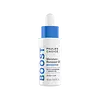What's inside
What's inside
 Key Ingredients
Key Ingredients

 Benefits
Benefits

 Concerns
Concerns

 Ingredients Side-by-side
Ingredients Side-by-side

Prunus Amygdalus Dulcis Oil
Skin ConditioningCaprylic/Capric Triglyceride
MaskingPrunus Armeniaca Kernel Oil
MaskingBakuchiol
AntimicrobialBorago Officinalis Seed Oil
EmollientGossypium Herbaceum Seed Oil
Skin ConditioningOenothera Biennis Oil
EmollientSimmondsia Chinensis Seed Oil
EmollientRosa Canina Fruit Oil
EmollientLinum Usitatissimum Seed Oil
PerfumingParfum
MaskingHippophae Rhamnoides Oil
EmollientAlgae Extract
EmollientBrassica Campestris Seed Oil
Skin ConditioningRosmarinus Officinalis Leaf Extract
AntimicrobialTocopherol
AntioxidantHelianthus Annuus Seed Oil
EmollientLinalool
PerfumingGeraniol
PerfumingCinnamyl Alcohol
PerfumingPrunus Amygdalus Dulcis Oil, Caprylic/Capric Triglyceride, Prunus Armeniaca Kernel Oil, Bakuchiol, Borago Officinalis Seed Oil, Gossypium Herbaceum Seed Oil, Oenothera Biennis Oil, Simmondsia Chinensis Seed Oil, Rosa Canina Fruit Oil, Linum Usitatissimum Seed Oil, Parfum, Hippophae Rhamnoides Oil, Algae Extract, Brassica Campestris Seed Oil, Rosmarinus Officinalis Leaf Extract, Tocopherol, Helianthus Annuus Seed Oil, Linalool, Geraniol, Cinnamyl Alcohol
 Reviews
Reviews

Ingredients Explained
These ingredients are found in both products.
Ingredients higher up in an ingredient list are typically present in a larger amount.
Borago Officinalis Seed Oil is from the seeds of the starflower plant. This plant grows primarily in Europe.
This oil does not have a scent. It contains fatty acids such as linolenic acid. These fatty acids help keep skin hydrated.
Borago Officinalis Seed Oil is an antioxidant. Antioxidants help fight free-radicals. Free-radicals are molecules that may damage your skin cells.
Learn more about Borago Officinalis Seed OilHelianthus Annuus Seed Oil is the oil derived from the seeds of a Sunflower. Sunflower seed oil is non-fragrant. It is an emollient, meaning it helps to soften the skin.
Sunflower seed oil contains many fatty acids. The fatty acids found in sunflower seeds include (from highest amount to least): linoleic acid, myristic acid, palmitic acid, stearic acid, arachidic acid, oleic acid, and linolenic acid.
These fatty acids help the skin create ceramides. Ceramides play a role in repairing the skin barrier.
Helianthus Annuus Seed Oil helps moisturize the skin. This in turn helps the skin look more rejuvenated and smoother.
Sunflowers are rich in vitamin E.
Historians believe Indigenous cultures of North America domesticated sunflowers before corn. Thus they relied on sunflower oil for a variety of uses. One such use is moisturizing skin and hair.
Sunflower seed oil may not be fungal acne safe. We recommend speaking with a professional if you have any concerns.
Learn more about Helianthus Annuus Seed OilOenothera Biennis Oil is the fixed oil derived from the seeds of the Evening Primrose.
Evening primrose oil is rich in fatty acids. These fatty acids include linoleic (60-85%), oleic (5-12%), palmitic (4-10%), and stearic (2-4%).
The fatty acid composition makes it a great ingredient for soothing and moisturizing skin. However, it may not be Malassezia folliculitis, or fungal acne safe.
Further research is needed on the role of evening primrose in treating eczema.
Evening primrose is native to North America.
Learn more about Oenothera Biennis OilThis ingredient is the oil from the apricot.
Apricot Kernel Oil is an emollient and helps soften skin. This is due to its fatty acid components. Some of these fatty acids include linoleic and oleic acid.
This ingredient also has antioxidant properties from Vitamins A, C, and E. Antioxidants help fight free-radicals. Free-radicals are molecules that may damage your skin cells. Besides being antioxidants, these vitamins provide plenty of skin benefits as well.
Learn more about Prunus Armeniaca Kernel OilThis oil comes from the seeds of the desert shrub called Jojoba. It is more commonly known as jojoba oil, a non-comedogenic oil.
Jojoba oil does not contain fragrance and has many fatty-acids, making it a great soothing ingredient.
It also contains Vitamin E, a great moisturizing ingredient. Vitamin E is also an antioxidant and protects your skin against oxidative damage.
This ingredient humectant properties, meaning it helps draw moisture from the air. This helps keep your skin hydrated.
While jojoba has antibacterial properties, it is only able to kill some strains of bacteria.
Studies also show it helps in wound healing. In fact, Indigenous cultures have used jojoba as a moisturizer and to help treat burns for centuries.
Fun fact: Jojoba oil similar to natural human skin sebum, so it has a great effect on dry skin. It is also promising with helping to regulate sebum production.
Due to its fatty acid content, Jojoba oil may not be fungal acne safe. We recommend speaking with a professional if you have any concerns.
Learn more about Simmondsia Chinensis Seed Oil